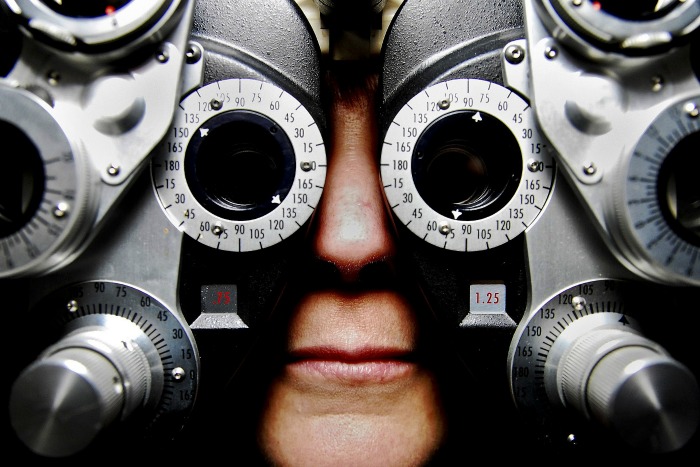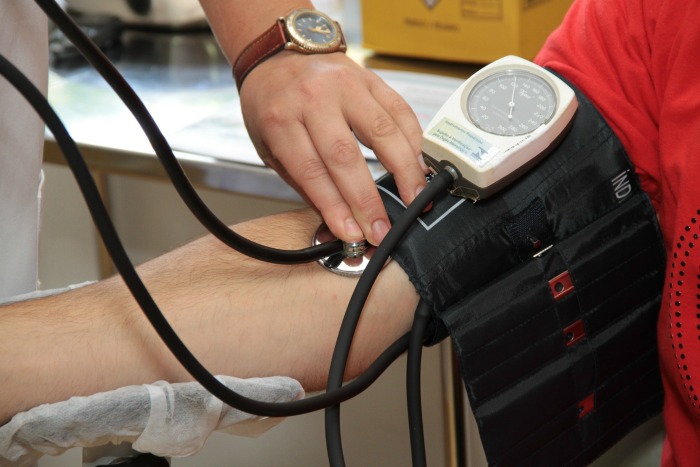
If you’ve been finding it harder to shake off a cold or get over an illness in older age, you’re not imagining things.
Immune systems weaken with age, making it harder to fight disease and common ailments in some cases.
With the New Year in full swing, now is a good a time as ever to book yourself into a GP to make sure that you’re ready to tackle the year ahead.
According to Better Health, there are certain tests that are important for both women and men. These tests don’t necessarily mean anything is wrong with you, but getting them will ensure that if something isn’t quite right, you’re prepared and health professionals have ample time to initiate a treatment plan if needed.
It’s always a good idea to visit your GP regularly; taking note when you’re body doesn’t feel quite right and committing to annual checkups even if you feel you’re in shape. Health professionals have an array of tests they can complete to help identify diseases – even if your body isn’t showing obvious signs that anything is out of the ordinary.
There are a number of different factors that can impact eye sight in older age, but glaucoma is one of the leading causes of blindness.
For women, the risk is increased if you have other health issues including diabetes, high blood pressure or ongoing problems with migraines.
Women aged 60-65 should be getting their eyes tested at least once every two years, while people over 65 should be tested annually.

It is vital to have a cervical screening test at least one every five years. These screenings not only pick up signs of cervical cancer, but also have the ability to detect the human papillomavirus, or HPV as it is commonly known.
When left untreated, HPV has the potential to turn into cancer.
The risk of osteoporosis in women increases with age, so it’s not uncommon for doctors to request a bone density test. As women age, their bones can become more brittle and prone to breakage. Health professionals are more likely to test if you have a history of osteoporosis in your family, if you’ve had any broken bones or fractures or if you went through early menopause.
It’s not uncommon for doctors to test for diabetes in older women. While a lot of symptoms can be the same as men, some women experience an array of unique side effects including itchy and painful genitals, a higher risk of vaginal and oral yeast infections as well as a dramatic change in weight, increased urge to urinate and increased desire to eat or drink.
Doctors will typically administer a blood test to ensure your glucose are correct. Most people are tested every one to three years, but speak to your GP sooner if you feel that something isn’t quite right.

Breast cancer kills about 17,730 people in Australia each year, with 13 per cent of all new cancer diagnoses in 2017 being breast cancer.
Even if you have no family history of breast cancer, it’s important you still get a mammogram every two years. If you do have a history of breast cancer within your family, it’s important to chat with your GP to come up with an action plan. It is likely you’ll be tested and screened more regularly.
Taking a few minutes every month to feel for lumps while you’re at home is also important. If you notice anything out of the ordinary, such as lumps, dimpling on the breast, or discharge from the nipple, always seek medical advice immediately.
Men are less likely to seek help from a medical expert, however, regular check-ups could prevent life-threatening diseases. It’s not uncommon for a doctor to chat with you about your medical history and health, so it’s always good to arrive as prepared as possible with information about yourself about your medical history.
Prostate cancer is a big killer for older men, with one in six men in Australia diagnosed before the age of 85 and one in seven in America diagnosed in their lifetime. The risk is also increased the older men get, with 63 per cent of all cases occurring in males over the age of 65.
While the test itself isn’t pleasant, it is vital. A doctor usually feels lumps on the prostate gland by inserting a finger into the anus. It is recommended men have a check-up once a year, although further tests could be required if you have a history of cancer in your family or if a health professional does find any abnormalities.

Bowel cancer is another deadly disease men (and women) should be tested for regularly. Men are more likely than women to be diagnosed with the life-threatening disease. It’s believed 9,127 men were diagnosed with bowel cancer in Australia last year, with tests usually requiring patients to provide a stool sample once every two years. In addition, those at higher risk may be required to undergo a colonoscopy once every five years to detect any anomalies.
A number of factors can cause blood pressure to dramatically rise or fall, so it’s always a good idea to get a blood pressure test. A health professional will typically test it with a blood pressure cuff and will usually prescribe medication to bring your pressure up or down – depending on how high or low it is.
High or low blood pressure is often thought to be a silent killer, mainly because different people show different symptoms, which can make it difficult to determine.

While millions of older men already wear glasses or contact lenses, it’s still important to get a check-up to ensure your eyes aren’t deteriorating. Common sight conditions include cataracts, macular degeneration and glaucoma.
If you wear glasses, be sure to ask for an eye test annually, while people who don’t have a prescription should still be getting examined every second year.
If you experience problems with blood pressure or if you’ve recently changed medication, it’s also a good idea to speak to an optometrist as this can also effect your eyesight.